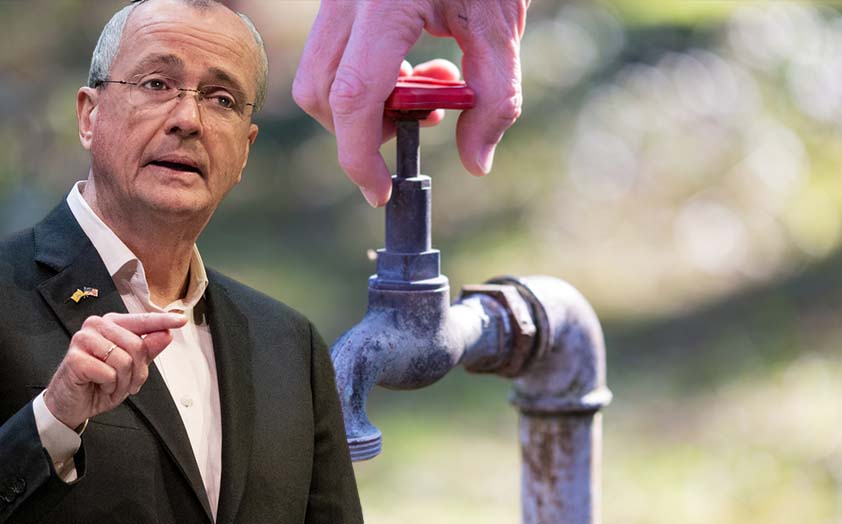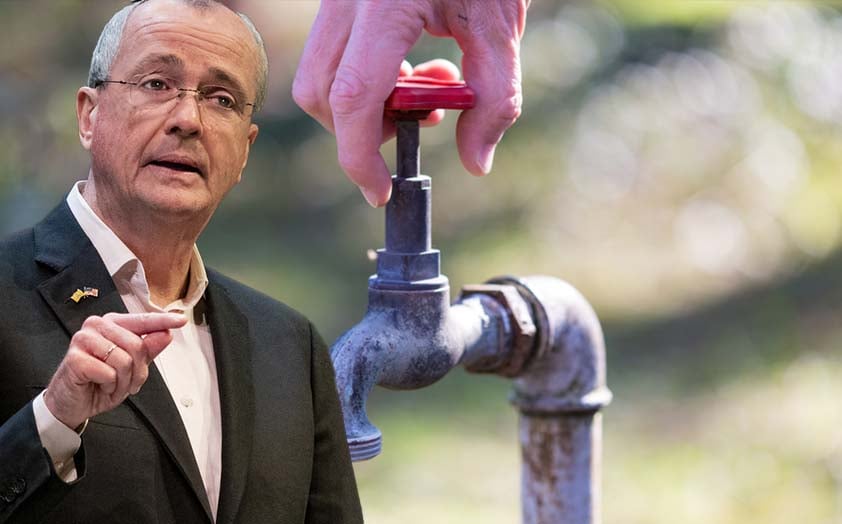
TRENTON, N.J. — New Jersey Governor Phil Murphy is pushing for a climate change focused plan to address New Jersey’s water supply. If history can be used as a guide, this could mean high water prices in New Jersey due to new regulations, testing requirements, capacity requirements, and treatment requirements for municipal water providers.
That cost could eventually be passed on to the consumers.
Governor Murphy’s administration has released a comprehensive plan aimed at modernizing New Jersey’s water supply system and addressing the growing impacts of climate change. The 2024 New Jersey Statewide Water Supply Plan, announced during Climate Week, is the first of its kind to factor in climate change, with specific attention to issues like temperature changes, precipitation shifts, and rising sea levels.
The plan underscores the need to prepare for increased water supply challenges, despite the state’s current ability to meet demand under normal conditions. State officials have emphasized the importance of addressing threats from aging infrastructure and emerging contaminants. “A healthy water supply is dependent on constant reevaluation of how we can use water more efficiently to protect it for future generations,” said Shawn M. LaTourette, Commissioner of the Department of Environmental Protection (DEP).
The document outlines multiple strategies to ensure that New Jersey’s water resources remain adequate, including steps to modernize policies, enhance infrastructure resilience, and implement stricter monitoring methods. Additionally, it recommends updating water management practices to account for future climate conditions. Steven Domber, New Jersey’s State Geologist, noted that climate change “can pose a threat to our water supplies if not properly addressed by proactive planning.”
Released after months of public feedback, the plan integrates insights gathered during a 60-day comment period earlier this year. The DEP held both in-person and virtual meetings before finalizing the report, ensuring that public concerns were considered in the updated recommendations.
The plan comes as New Jersey grapples with recurring water challenges. Recent extreme weather events, including droughts and severe flooding, have strained the state’s water management systems. State officials expect such conditions to persist or worsen, highlighting the need for long-term, sustainable water supply planning.
For more details, the full plan is now available on the DEP’s website, along with resources for both residential and professional water users.

